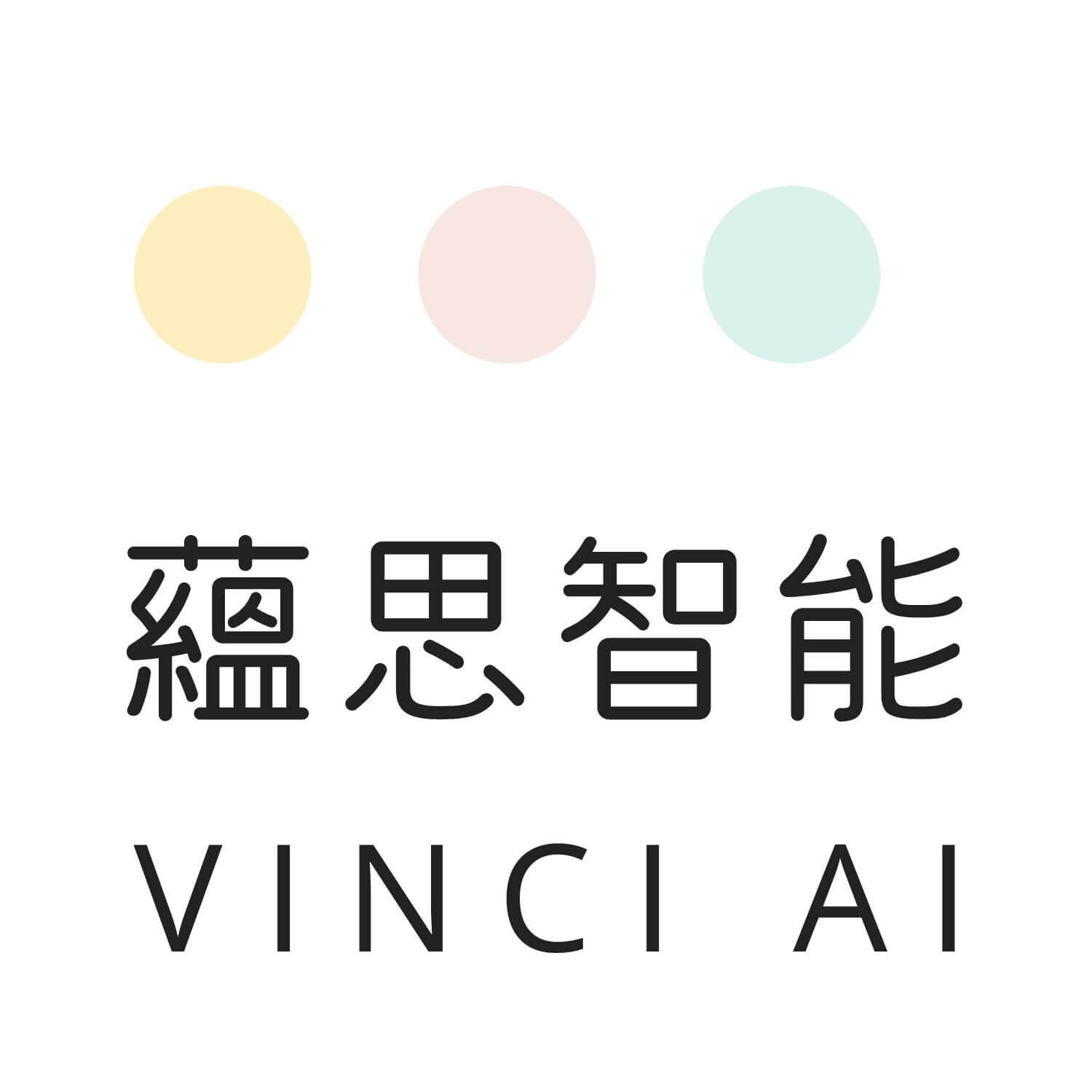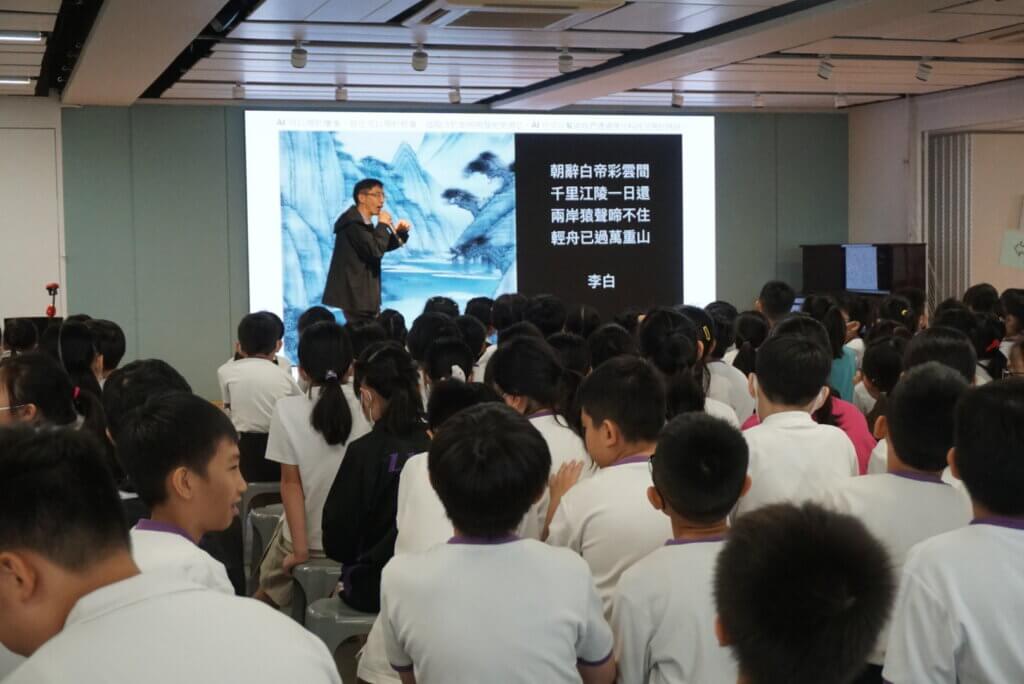Provide 100% eligible AI solutions for primary and secondary schools.
IT Innovation Lab and Fun IT Knowledge: School-Based Resources and Procurement Center
In conjunction with the "IT Innovation Lab" and "Fun IT Knowledge" programs,Vinci AI provides schools withEmphasis on both learning and teachingSchool-based solutions.From curriculum planning to hardware support,Provide comprehensive support for school development.

A successful IT lab needs both hardware and software capabilities.
When approving funding, the Education Bureau and OGCIO place great emphasis on the program's [specific aspects].Teaching objectives and SustainabilityA single hardware purchase is often insufficient to meet approval requirements.
With a deep curriculum structure
It's not just about the experience; it's about having systematic learning outcomes and evaluation mechanisms.
Equipment that combines cutting-edge technology with practicality
Introduce industry-standard AI technologies (such as machine vision and LLM) and ensure that the equipment can be truly integrated into daily teaching.
Secondary School Program
Designed specifically for IT innovation labs
Designed specifically for IT innovation labs, this program introduces the Unitree Go2 robotic dog and R1 robot, and teaches Python and Deep Learning. The course connects to the DSE ICT elective unit, cultivating advanced AI computational thinking and ensuring that 100% meets funding approval standards.

Primary school program
Designed specifically for fun IT knowledge
This program is designed for the "Know More About IT" initiative. It utilizes UGOT transforming robots and drone swarm programming to stimulate interest in innovation through gamified learning. It is suitable for hosting STEM Days and comprehensive learning activities, easily creating a vibrant campus innovation atmosphere.
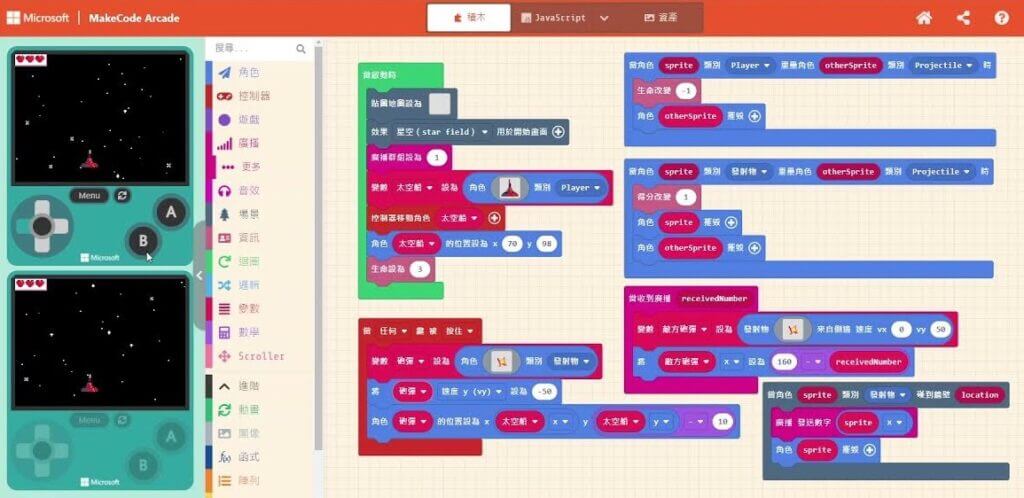
Working alongside schools: Administrative support from planning to implementation
We understand that teachers are busy with teaching. The Vinci AI team has extensive experience in collaborative solutions and can assist schools in handling complex administrative procedures.
✅ Suggestions for improving the project proposal: In response to the Education Bureau's requirements regarding "budget ratio" and "curriculum depth," we provide professional revision suggestions to ensure that the project plan meets the approval criteria.
✅ Targeted Q&A responses: When we receive questions from OGCIO regarding technical details, we provide standardized technical parameters and pedagogical justifications to help teachers respond easily.
✅ Flexible purchasing options: Based on the remaining funding approved by the school, the combination of equipment and courses will be flexibly adjusted to ensure maximum utilization of resources.
From planning to funding: Vinci AI's five-step application and procurement process
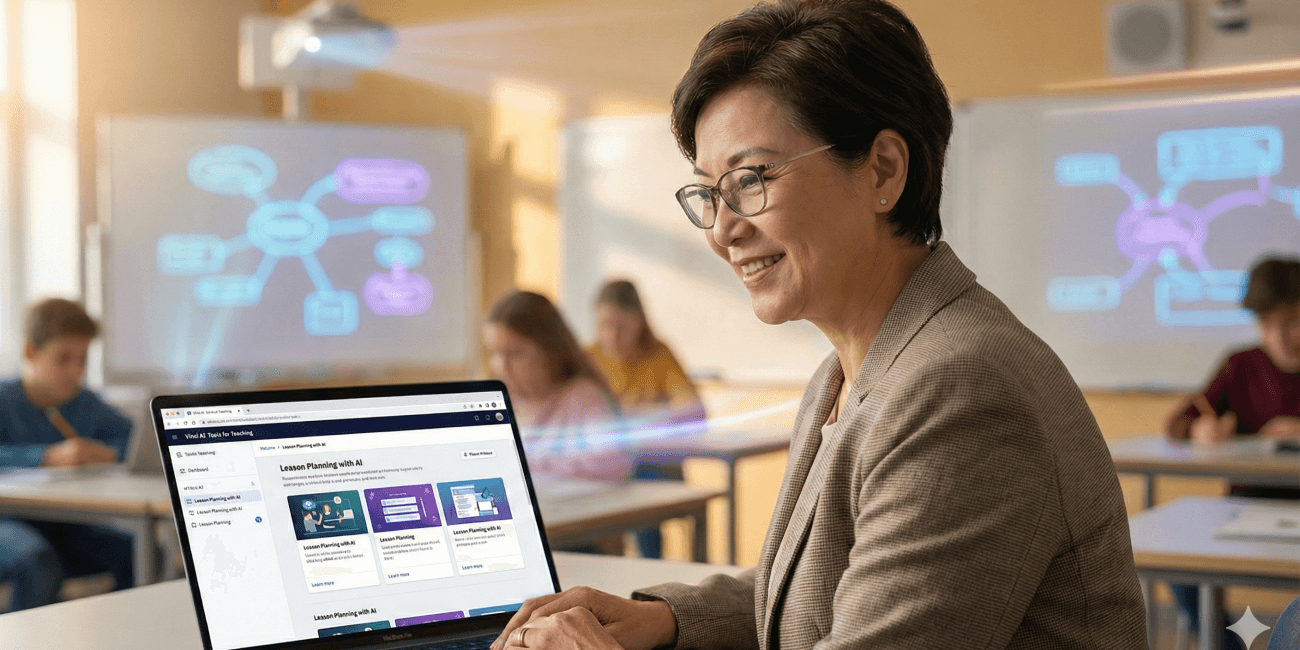
Preliminary consultation
Analyze the remaining funding for the school's IT Innovation Lab. Understand the school's STEM development direction and recommend suitable combinations of AI hardware (Unitree Go2/R1) and programming courses.

Proposal writing and quotation
Provide a project proposal template that meets OGCIO approval standards. Issue a detailed quotation, listing all equipment specifications and maintenance terms, ensuring compliance with the Education Bureau's procurement guidelines.
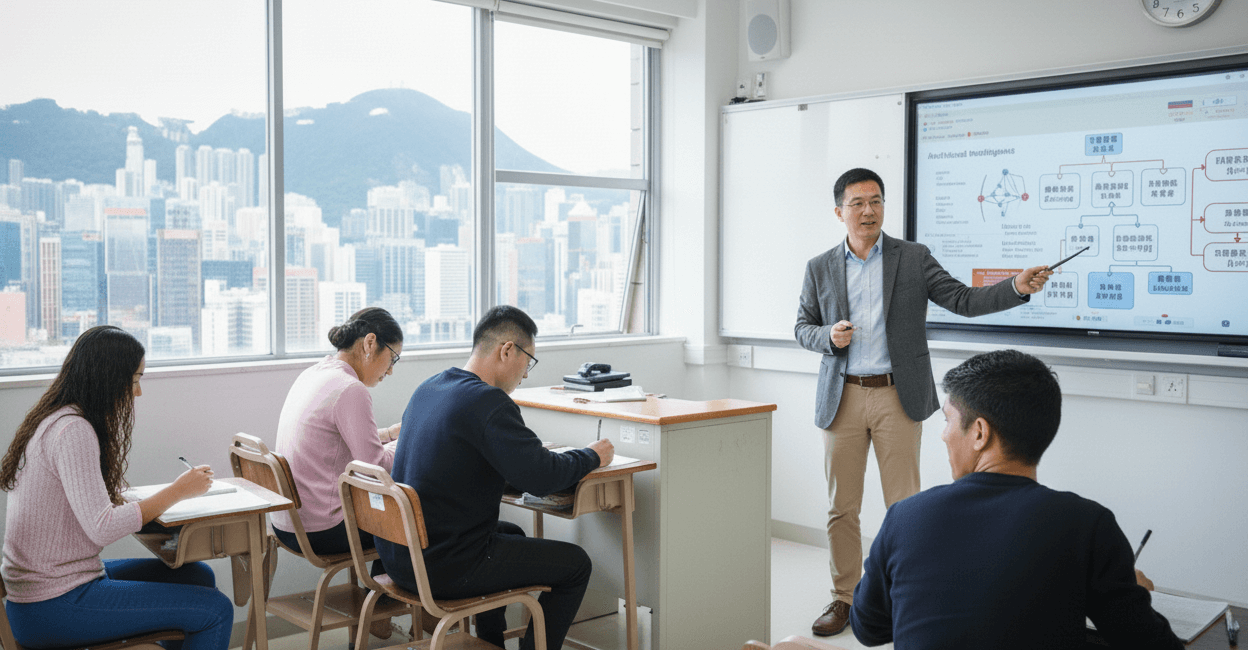
Submission and Approval Support
Assist schools in answering technical questions from approval personnel. Provide supplementary information regarding "course depth" and "budget reasonableness" to increase the success rate of approval.
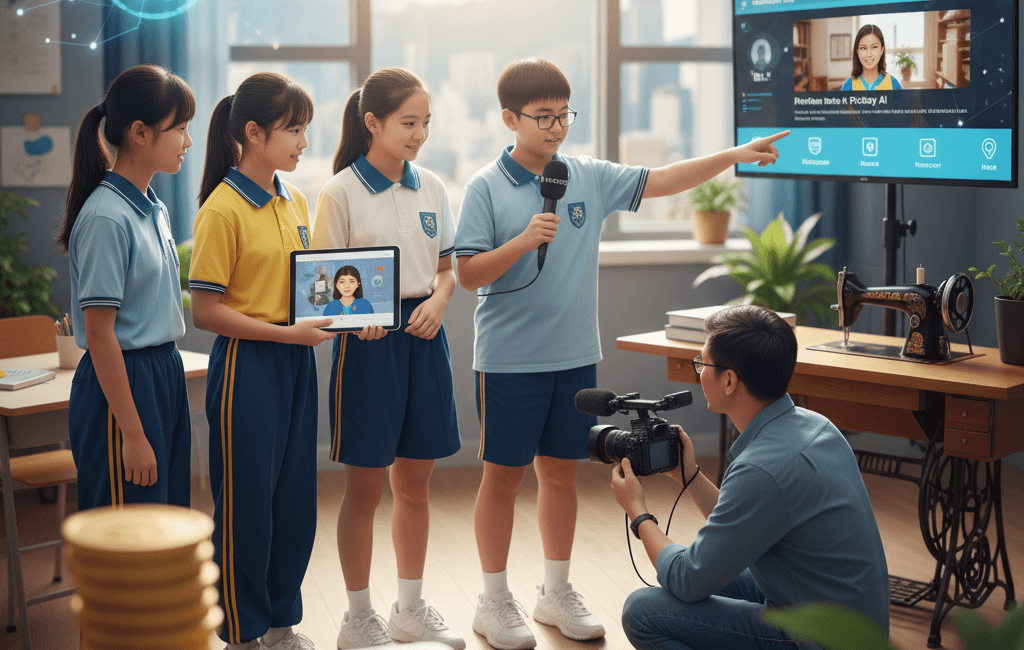
Course Implementation and Outcome Presentation
Dispatch professional tutors to teach school-based AI courses. Assist in organizing STEM Day and school-wide achievement exhibitions to showcase student learning outcomes.
What is the purpose of the Middle School IT Innovation Lab program?
The Secondary School IT Innovation Lab is a programme aimed at promoting interest in information technology and innovative thinking among secondary school students in Hong Kong. The scheme, implemented by the Office of the Government Chief Information Officer, provides funding to publicly-funded secondary schools to upgrade their IT equipment and facilities and to organise IT-related extra-curricular activities.
The purpose of the plan is as follows:
- Provide a subsidy of up to $1 million to each aided secondary school to purchase the necessary information technology equipment and professional services.
- Organize more extracurricular activities related to information technology to deepen students’ understanding of new information technologies, such as artificial intelligence, blockchain, cloud computing, big data, etc.
- Establish a good information technology foundation to prepare young people for their future development.
In addition, the program aims to cultivate secondary school students' interest in information technology, strengthen their innovative thinking, and create an information technology learning atmosphere to encourage them to choose college courses in related technology fields and join the innovation and technology industry in the future.
How to apply for IT Innovation Lab?
The process of applying for the IT Innovation Lab is as follows:
- During the plan period, you can visit the official website (https://www.it-lab.gov.hk/en/application.php)Submit your application online.
- Submit an annual plan detailing the proposed IT-related activities, IT equipment and services to be procured, budget breakdown and the expected use of funds.
- A hard copy of the annual plan signed by the principal and stamped with the school seal must be mailed to the OGCIO One-Stop Support Centre within five working days after the online application is submitted.
- Schools may submit modification applications throughout the year to request additional funding or to modify approved activities.
- The review process generally takes approximately one month or longer from the date the application is received, depending on the completeness of the application, the volume of applications being processed at the time, and the scheduling of the review committee meetings.
Please note that while applications are accepted year-round, schools that wish to receive funding or have their applications processed before the end of the fiscal year on March 31 should submit their applications on or before February 1. Schools can also submit draft applications to the One Stop Support Centre in advance for advice.
What schools qualify?
All publicly-funded secondary schools, including the following types of schools, are eligible to apply:
- Government Secondary School
- Aided secondary schools (including special schools)
- Caput secondary schools
- Direct Subsidy Scheme (DSS) Secondary Schools
It is worth noting that the scheme is currently in an extension period, with the latest funding period being from the 2023/24 to 2025/26 academic year.
What is the scope of the need for professional services in the extracurricular activities of the middle school IT Innovation Lab program?
The scope of professional services under the funding scheme includes:
Procurement and maintenance of IT equipment and infrastructure:
- Server and client hardware and software
- Optical fiber and broadband network
- Cloud Services and Storage
- The equipment must be directly related to and necessary for the proposed IT-related extracurricular activities.
Professional services to support IT related activities:
- Cloud services and related support
- Professional services for maintenance and learning support
Organizing extracurricular activities related to information technology:
- Workshops, seminars and short courses
- Local visits and experience activities
- Participate in local and non-local competitions
- Organize exhibitions to showcase students' innovative achievements
Training courses:
- Programming courses (such as Python, APP development)
- Virtual Reality/Augmented Reality Courses
- Artificial Intelligence Training
- Drone Programming
- Robotics
- Information Technology Application and Digital Transformation
It should be noted that the funding for the procurement of IT equipment, infrastructure and related services should generally not exceed HK$500,000 (during the entire programme period). Schools need to clearly justify these expenditures, explaining why they are necessary for the proposed activities and how the equipment and services will be fully utilized.
What is the amount of funding and what scope can it be used for?
Funding ceiling:
- During the three-year funding period (2023/24 to 2025/26 academic year), each secondary school can receive a maximum funding of HK$1 million.
Eligible Purposes:
- Procurement and maintenance of IT equipment and infrastructure such as servers, hardware and software, network equipment, cloud services, etc. which must be directly related to the proposed IT-related extracurricular activities.
- Obtain relevant professional services (such as cloud services) to support IT-related activities.
- Organise IT-related extra-curricular activities such as workshops, seminars, short courses, local visits and experiential activities.
- Participate in local and non-local competitions and organize exhibitions to showcase students' innovative achievements.
- To cover operating expenses and administrative costs directly related to these activities.
limit:
- Generally speaking, funding for the procurement of IT equipment, infrastructure and related services should not exceed HK$500,000.
- School-wide network infrastructure upgrades or e-learning network infrastructure that are not directly related to the proposed IT innovation activities are not within the scope of funding.
- Non-local study tours, teacher training not directly related to subsidized activities, use of information technology to support general teaching and promotional items such as souvenirs and prizes are usually not covered by the subsidy.
What responsibilities does the school need to assume after the application?
After the application is approved, participating schools need to assume the following responsibilities:
Program Management:
- Responsible for planning, managing and implementing activities under the funding scheme
- Designate a teacher to be responsible for the planning, management and implementation of the project and inform OGCIO of any changes in the responsible teacher
Financial Responsibility:
- To cover the long-term recurring costs of procuring IT equipment, infrastructure and professional services after the project ends
- Set up a separate bank account (aided, DSS and caput schools) or use a separate user code (government schools)
- Any interest earned from the grant must be used for program purposes
- Submit audited final financial report within three months after the end of the program
- Unused funding balances must be returned to OGCIO upon completion of the project.
Reporting Responsibilities:
- Submit an annual report to OGCIO by August each year, detailing the activities, expenditure and use of equipment and services
- Submit together with next year's plan
- The report should include statistics such as the level and number of students participating in the activity and the venue used.
asset Management:
- Maintain and regularly update appropriate records for inventory management
- Record IT equipment or items costing HK$1,000 or more and with a useful life of more than one year in the asset register
- Reselling assets for a profit within three years of purchase is generally not permitted
Procurement Procedures:
- Follow an open, fair and competitive process
- Comply with relevant guidelines issued by the Education Bureau and the government
intellectual property:
- Participating schools retain the intellectual property rights in any material created or developed under the program
- However, a non-exclusive, royalty-free licence is granted to the Government to use, reproduce and disseminate these materials for educational and promotional purposes
What are some successful application cases?
The diversity of successful applications demonstrates the broad range of IT-related activities supported by the program:
Programming related:
- We Can Code (Workshop for Secondary 1 to 4 students) - Funding amount: $510,000
- Python Programming Bootcamp and Application Development Courses
Emerging Technology Courses:
- Virtual Reality and Augmented Reality Courses
- Internet of Things and Smart Home Courses
- Special Topic on Artificial Intelligence
- Exploring Artificial Intelligence and Cloud Technology - Funding Amount: $550,000
Diversified technical course portfolio:
- Comprehensive courses such as 3D image production, machine learning introduction, artificial intelligence basics, drone programming, etc. - Funding amount: $911,836
- A wide range of workshops and courses covering Python programming, game design, AI application development, virtual reality, IoT, etc. - Grant amount: $979,700
- Multiple training courses including virtual reality/augmented reality, basic artificial intelligence production, intelligent mechanical device production, AI-900 certificate, Python training camp, etc. - Funding amount: $1,000,000
Competition and practical application:
- The school participated in and won awards in various robotics competitions, such as the CREATE US Open Robotics Championship and the Hong Kong Youth Robotics Competition
- Mobile App Programming and Virtual Reality Game Design Projects
When is the latest funding period for the program?
The latest funding period of the scheme is from the 2023/24 to 2025/26 academic year, a total of three years. This is an extension of the scheme, the original funding period was from the 2020/21 to 2022/23 academic year. The program continues to receive government support and has been extended, reflecting the government’s emphasis on information technology education and its recognition of the program’s effectiveness.
What are the common reasons for an application being rejected?
Common reasons include: a lack of specific learning objectives in the course, an imbalance between hardware and software, or being perceived as purely entertainment activities lacking technological elements. Vinci AI's... Project optimization service It can help the school make corrections in these areas.
Comprehensive support for funding applications: professional consultation and administrative assistance
Vinci AI is dedicated to transforming the research findings of top universities into AI courses suitable for primary and secondary schools. As...Served eight local universitiesandHong Kong Education CityStrategic partners We are well aware of the resource and administrative challenges that schools face in promoting STEAM development.
Therefore, we not only provide high-quality teaching content, but also offer schools a range of...Funding Program Application到Case Closure AssessmentOne-stop administrative support Please click below to learn how we help schools make the best use of government grants and our academic collaboration network.
Targeted funding program matching
We can accurately match suitable funding programs according to the school's needs, ensuring that resources are used properly.
Secondary School IT Innovation Lab / Fun IT Knowledge (IT Innovation Lab)
Applicable projects: Unitree offers training in robotic dog programming, AI drone swarm flying, and UGOT robot competitions.
Supported content: Provide suggestions on setting course outlines, hardware specifications, and activity effectiveness indicators for "Artificial Intelligence and Robotics" that meet the approval standards of the authorities.
Quality Education Fund (QEF) / Life-wide Learning Grant:
Applicable projects: School-wide STEM Day, AI sports meet, and interdisciplinary thematic workshops.
Supported content: We provide detailed project proposal templates, covering teaching philosophy, expected outcomes, and evaluation mechanisms, to help teachers quickly prepare application documents.
One-stop administrative support
Vinci AI understands the heavy workload teachers face in their daily teaching, and we provide complete administrative support to make the preparation process smoother.
Standardized document template: We provide project proposal and quotation templates that have been adopted by many schools. Teachers only need to make minor adjustments according to their school's specific needs, which greatly saves time on paperwork.
Professional Qualification Certification: The mentor team comprises doctoral-level experts with extensive teaching experience, whose qualifications fully meet the stringent requirements of various funding programs.
Post-activity effectiveness evaluation: Upon completion, a complete student activity data report and questionnaire analysis will be provided to help the school successfully complete the bureau's case closure procedures.

AI artificial intelligence courses for primary and secondary schools
Would you like to know more about the details of the program?
Contact our consultants
To learn more about the details of the Secondary School IT Innovation Lab, please contact our curriculum consultant. We will provide recommendations based on your school's specific needs.
